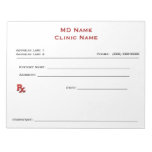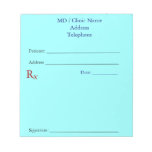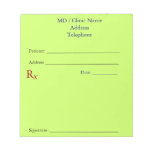When it comes to talking to patients about fees and collections, a little empathy goes a long way. After all, now more than ever, patients are responsible for a much larger share of their medical costs, forcing some in dire situations to take on payday loans, tap into retirement funds, or sell possessions to meet amounts due. For independent practices, talking with patients about their financial responsibility is a challenge, but it also offers a unique opportunity to build a stronger physician-patient relationship. When you work in partnership with patients to approach their bills and payment options, you can expect better financial returns and the loyalty of return patients.
The driving force behind the rising patient payment portion is the growth of high deductible health plans, which have continued to rise year over year. In fact, according to Kaiser Family Foundation, 24% of employees were enrolled in employer-sponsored high-deductible plans in 2015, up from just 4% in 2006. Those numbers are even higher in the individual marketplace, where almost 90% of consumers choose a high-deductible healthcare plan (HDHP).
This move to HDHPs has created an ever-increasing problem for patients who are now facing large medical bills, the types they never had to worry about before. In fact, statistics show that 20% of working-age Americans with insurance encountered problems paying medical bills in the past year, which often led to serious financial challenges and changes in employment and lifestyle. And 31% of insured Americans were forced to take money out of retirement, college, or other long-term savings accounts to pay medical bills in the past year, with 17% percent of uninsured patients reporting the same.
The good news for independent practices is that they have historically had better patient collections rates than larger systems, in part because of better communication between provider and patients. In order to remain financially viable, however, practices need to increase this effort. This can be uncomfortable for doctors and office staff alike, but successful communication always includes empathy. Physicians have focused on clinical empathy, but there is a need to extend those skills to all parts of the business. Here are a few tips:
#1 Treat Your Patient as a Person, Not a Bill
Remember that your patients are likely overwhelmed between dealing with their health questions and financial issues. Focusing on the individual patient before the bill is the first step to handling patient payments with empathy. Small gestures like addressing them by name and saying that you hope they feel better soon can lead to a more productive exchange when you then ask them what would be the most convenient way for them to pay. Show your patients you care.
#2 Don’#t Judge
That old saying that you never know what another person feels until you’ve walked a mile in their shoes is as true now as ever. A survey by the Federal Reserve reported that 47% of American families faced with a $400 emergency bill would not have the resources on hand to cover the expense. If a patient says they're unable to pay their entire bill, even if the amount seems small to you, remember that most patients want to pay their bill if they can. Consider offering a payment plan to help ease the burden and enhance their loyalty to your office.
#3 Sustain an Attitude of Service
As a medical practice, you are there to serve your patients. Try keeping this at the forefront of conversations in the front office as well as the examining room. By maintaining an attitude of service, you will find yourself automatically handling situations with the empathy necessary to achieve an optimum patient experience.
#4 Look for Emotional Cues and Respond Appropriately
For some patients, talking about their finances is very stressful. They may be experiencing a job loss or other financial burdens that make even small medical bills seem overwhelming. Imagine how you would feel in the same situation and look for cues to what your patient is feeling. If they look sad or stressed out, offering them emotional support and understanding can go a long way to helping them move forward and figure out a payment plan that works for them as well as your practice.
Here are a few scripts developed by HFMA to help you and your staff begin the money conversation with your patients in an empathetic manner.
Sample Script 1
"Mr. / Ms. _______, as per your insurance carrier/plan, you have an estimated amount due of $_______. This estimate includes $_______ for your copayment, $_______ for your outstanding deductible, and $_______ for your coinsurance. This is an estimate of your liability based on the information available from your insurance company. Additional amounts due may be billed to you after your insurance company receives and processes the claim. I can help you take care of that. How would you like to pay for that today… cash, check, or credit card?"
Sample Script 2
If the patient is in the office:
"Mr. / Ms. _______, you have a current outstanding balance of $_______. How would you like to take care of that today?"
Sample Script 3
If the patient is on the phone:
"Mr. / Ms. _______, I am confirming your appointment with Dr. _______ for _______ at _______. I also see you have an outstanding balance of $_______ on your account. We would be happy to take care of that for you tomorrow at your appointment time. We accept cash, check, Visa, MasterCard, American Express, or Discover."
The independent medical office has an advantage in that it can pivot much faster than its larger competitors. Offering a variety of options to pay, and engaging the patient as a person rather than a payment is key to that advantage. Use these tips and the sample scripts for staff training so that when billing issues arise, your office can empathize and be a part of your patients’ entire healthcare
journey.




Great Post!
ReplyDeleteMedical Patient Collection Services